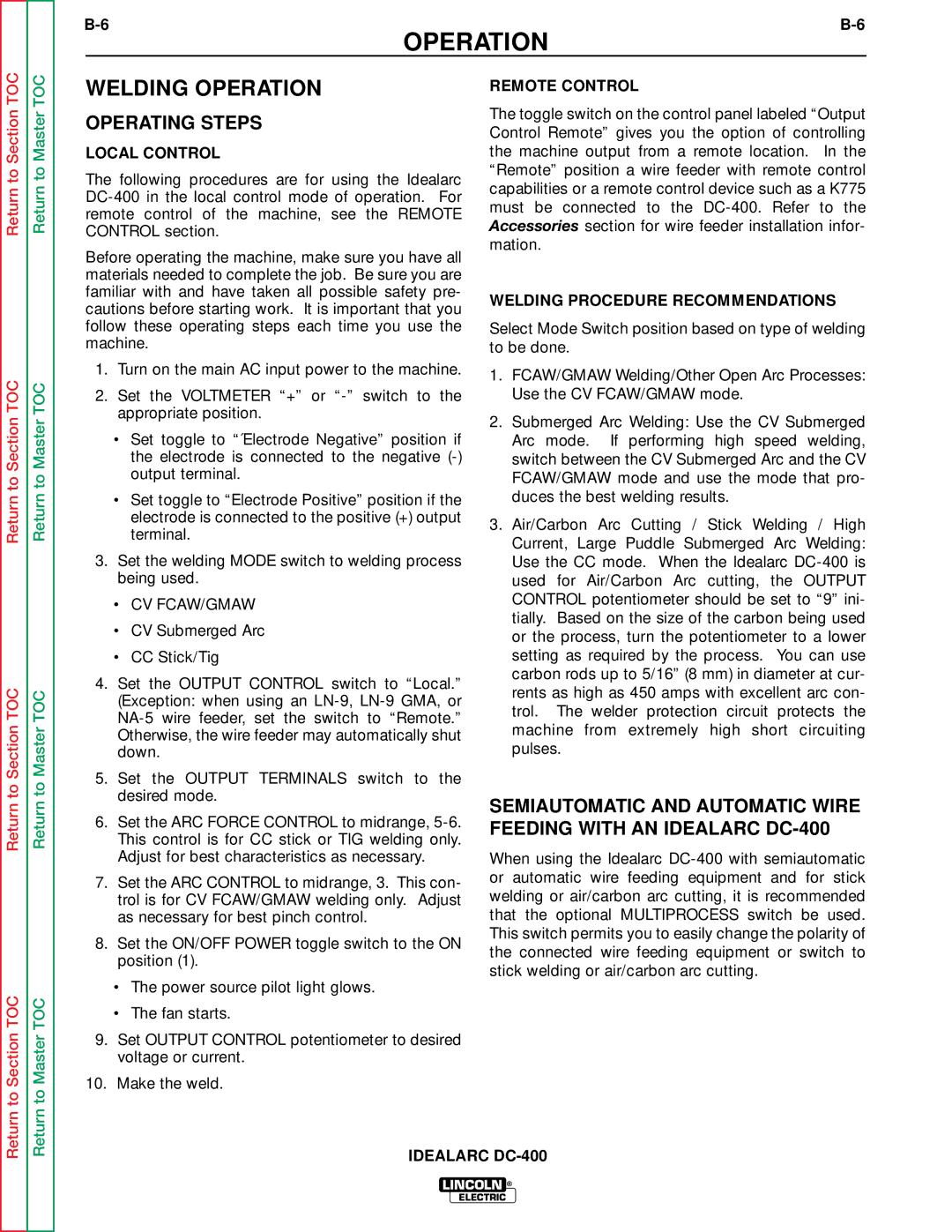
OPERATION
Return to Section TOC
Return to Section TOC
Return to Section TOC
TOC
Return to Master TOC
Return to Master TOC
Return to Master TOC
TOC
WELDING OPERATION
OPERATING STEPS
LOCAL CONTROL
The following procedures are for using the Idealarc
Before operating the machine, make sure you have all materials needed to complete the job. Be sure you are familiar with and have taken all possible safety pre- cautions before starting work. It is important that you follow these operating steps each time you use the machine.
1.Turn on the main AC input power to the machine.
2.Set the VOLTMETER “+” or
•Set toggle to “´Electrode Negative” position if the electrode is connected to the negative
•Set toggle to “Electrode Positive” position if the electrode is connected to the positive (+) output terminal.
3.Set the welding MODE switch to welding process being used.
•CV FCAW/GMAW
•CV Submerged Arc
•CC Stick/Tig
4.Set the OUTPUT CONTROL switch to “Local.” (Exception: when using an
5.Set the OUTPUT TERMINALS switch to the desired mode.
6.Set the ARC FORCE CONTROL to midrange,
7.Set the ARC CONTROL to midrange, 3. This con- trol is for CV FCAW/GMAW welding only. Adjust as necessary for best pinch control.
8.Set the ON/OFF POWER toggle switch to the ON position (1).
•The power source pilot light glows.
•The fan starts.
REMOTE CONTROL
The toggle switch on the control panel labeled “Output Control Remote” gives you the option of controlling the machine output from a remote location. In the “Remote” position a wire feeder with remote control capabilities or a remote control device such as a K775 must be connected to the
WELDING PROCEDURE RECOMMENDATIONS
Select Mode Switch position based on type of welding to be done.
1.FCAW/GMAW Welding/Other Open Arc Processes: Use the CV FCAW/GMAW mode.
2.Submerged Arc Welding: Use the CV Submerged Arc mode. If performing high speed welding, switch between the CV Submerged Arc and the CV FCAW/GMAW mode and use the mode that pro- duces the best welding results.
3.Air/Carbon Arc Cutting / Stick Welding / High Current, Large Puddle Submerged Arc Welding: Use the CC mode. When the Idealarc
SEMIAUTOMATIC AND AUTOMATIC WIRE FEEDING WITH AN IDEALARC
When using the Idealarc
9.Set OUTPUT CONTROL potentiometer to desired voltage or current.
10.Make the weld.
IDEALARC
LINCOLN ®
ELECTRIC
